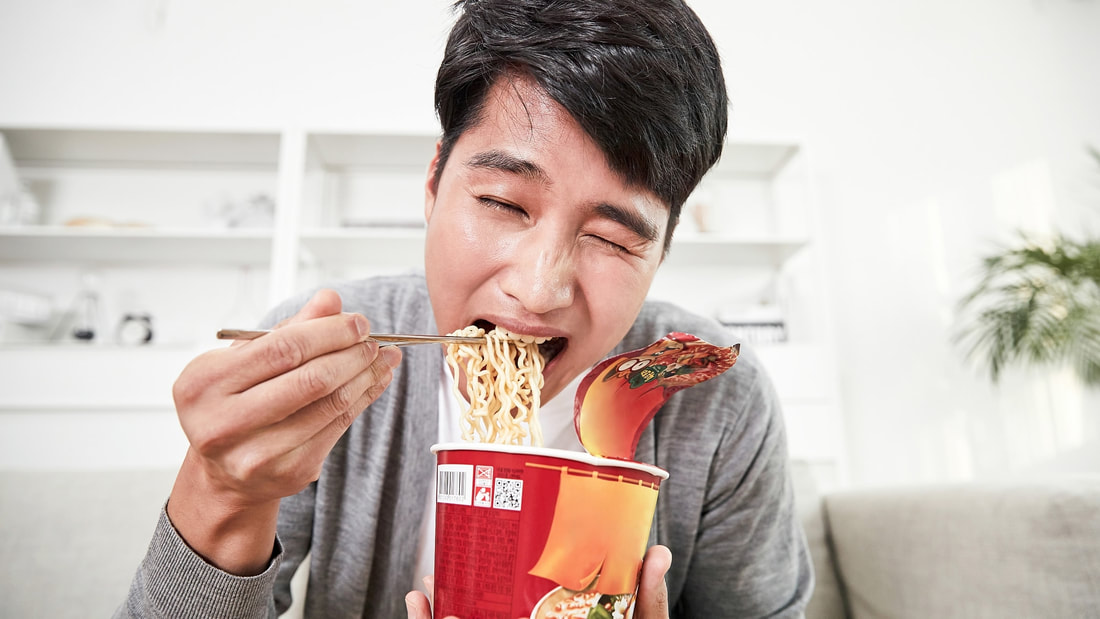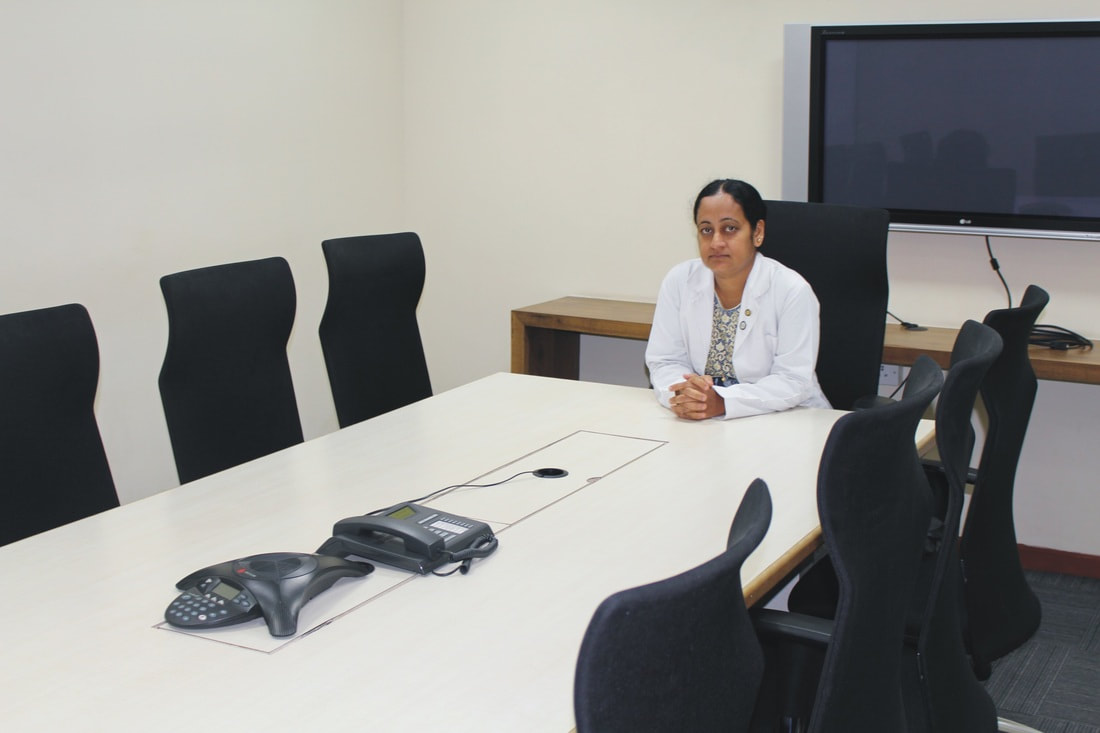|
Despite the fact that instant noodles came under the radar for its debilitating effects on human health it is back with a bang and sales too haven’t witnessed a dip in recent times. Even a 10-year-old can prepare instant noodles in a jiffy. Kids of any age group love it when it’s time for their noodle treat and parents too don’t mind giving it to their children as the dish is cheap, convenient and tasty. It’s preferred by travelers, bachelors and those staying in hostels as all that you need to prepare it is a cup of hot water. Born in Japan, this dish has gained supremacy over the entire world with its overload of preservatives and empty calories. Indeed, this so-called super dish does have its own share of disadvantages.
It all boils down to the food that we eat finally. Unhealthy dietary choices such as high intake of junk foods and soft drinks and inappropriate lifestyle practices decide upon our quality of life. Instant noodles is mostly consumed in higher quantities in Asian countries, especially South Korea which tops the consumption list consuming more than 4 billion packets. We do know that noodles aren’t good for health but what exactly does their consumption do to our body? Hypertension is a great risk factor for heart disease, stroke and kidney failure and South Korea has more than 29% of adults aged above 20 years suffering from it. Asians including Koreans eat more of carbohydrates. Though the consumption of rice (staple food of Asians) has decreased in the previous few years the consumption of bread and noodles has almost doubled. Maybe instant noodles do contribute towards the increased risk of hypertension as it is indeed a refined grain product. We are well-aware that diets such as the DASH diet that comprise more of whole grains, low-fat dairy, vegetables and fruits are good for reducing hypertension. We do have studies supporting the fact that higher intake of whole grain products decreases risk of hypertension. This induced a group of researchers to analyze the relationship between refined grain intake and risk of hypertension during 8 years of follow-up data. Cohort Study on Korean Adults The study included 10,030 Korean adults aged between 40 and 69 years and baseline data was collected from 2001 to 2002 and then follow-up data was conducted every 2 years over an 8-year period. 5,012 participants were excluded from the study based on different criteria such as presence of hypertension, cardiovascular disease and cancer and other criteria. Finally, 5,018 individuals (2,439 men and 2,579 women) were involved in the study. Each of the participants were asked about their frequency and portion sizes of food consumption during the previous year. Frequency was classified into one of the nine categories: never/seldom, once/month, 2-3 times/month, 1-2 times/week, 3-4 times/week, 5-6 times/week, once/day, 2 times/day and 3 or more times per day. Portion sizes were classified into three categories: 1/2 serving, 1 serving and ≥2 servings. Portion sizes was multiplied by the frequency of consumption. Refined grains were classified into three groups -white rice, noodles and bread with each of them having different varieties under their consumption. Noodles consumption was divided into five categories (never, 0-<1, 1-<3, 3-<5, ≥5 servings/week). BP measurements were taken twice and the average was considered. Systolic and diastolic blood pressure measurements (SBP and DBP respectively) were taken and hypertension was defined as having SBP ≥140 mmHg or DBP ≥90 mmHg. Participants were followed up for around 72 months and the follow-up rate was 64%. During this period, 1377 (710 men and 667 women) of the 5,018 participants were declared to be hypertensive. Comparatively, those who suffered from hypertension were those participants who were probably older, mostly men, had lower incomes, current smokers, less educated, had higher BMI and ate less of fruits and vegetables compared to those who did not acquire the problem. Results showed that:
Cardiometabolic Risk Cardiometabolic risk factors are rapidly increasing in South Korea and so are overweight and metabolic syndrome rates. All these are critical risk factors for cardiovascular disease. Once again, our dietary choices affect the risk rate of these diseases. There has already been results from a study reporting increased risk of cardiometabolic risk factors associated with a dietary pattern high in consumption of instant noodles, hamburgers and pizza in the Korean men population. The study cited below tried to find a link between instant noodles consumption, dietary patterns and cardiometabolic risk factors with the help of the Korean National Health and Nutrition Examination Survey (KNHANES) cross-sectional study. Though more than 24000 participants’ data was initially collected only 10,711 of them qualified for the study based on different study criteria. Food frequency questionnaires (FFQs) were given to participants asking them to choose between 10 frequency responses ranging from ‘almost never’ to ‘3 times a day’ for 38 different food items. Waist circumference, blood pressure, mean systolic and diastolic pressures, total cholesterol, fasting glucose, LDL and HDL cholesterol levels were also measured. Using the guidelines from the International Diabetes Federation metabolic syndrome was defined as abdominal obesity (waist circumference ≥90 cm in men and ≥ 80 cm in women) along with any of the two criteria among these-elevated blood pressure levels, low HDL cholesterol, hyperglycemia and hypertriglyceridemia. Intake of instant noodles was divided into five categories (<1 time/month, 1 time/month, 2-3 times/month, 1 time/week and ≥2 times/week). Two different dietary patterns were observed in both men and women-traditional dietary pattern (TP) that is rich in fruits, vegetables, fish, legumes, potatoes, grains, mushrooms and seaweed and meat and fast-food pattern (MP) consisting of less rice and cereal but more of meat, soda, fried food, instant noodles, bread, cookies, fish, pasta, ice cream, hamburgers and pizza. Those with the highest quintiles of MP also had a higher frequency of instant noodle intake (2 times/week in men and 1.2 times/week in women) compared to the highest quintiles of the TP (mean of 1.1 times/week in men and 0.7 times/week in women). Results showed that:
Effect on Young Individuals Yet another study was conducted on 3,397 (1,782 males and 1,615 females) students aged between 18 and 29 years. They were all asked to fill a questionnaire comprising of details on the age, height, weight, income, smoking, drinking and physical activity levels. The questionnaire also included a question on the frequency of instant noodles consumption over a 1-year period and frequency of other foods consumption such as processed meats, high-fat fish, sweets and confectionary. Results showed that males were likelier to frequently consume instant noodles (≥3 times/week) than females. Such individuals smoked more, drank more alcohol, ate more fried foods and confectionary and earned a lesser family income. These people also suffered from increased blood pressure and fasting blood glucose levels. In females, triglyceride levels and diastolic blood pressure levels were higher among frequent consumers of instant noodles. Also, college students who frequently consumed noodles were associated with an increased risk of cardiometabolic risk factors. Researchers at Harvard University reported a 68% higher risk of metabolic syndrome among women who consumed instant noodles more than twice a week but this was applicable to women. Most of the instant noodles are deep-fried contributing to increased calorie counting and carbohydrate consumption. Regular noodles are bad but instant noodles are worse as they are mostly prepared using palm oil and full of salt, artificial flavors and preservatives. It might be delicious compared to your regular noodles but it is also equally harmful. While it is recommended to avoid noodles if you must eat them please choose regular ones as they are not as bad as the instant ones though it might take an extra 5 minutes or so. References Noodle consumption is positively associated with incident hypertension in middle-aged and older Korean women: https://e-nrp.org/Synapse/Data/PDFData/0161NRP/nrp-13-141.pdf Instant Noodles Intake and Dietary Patterns are Associated with Distinct Cardiometabolic Risk Factors in Korea: https://academic.oup.com/jn/article/144/8/1247/4637708 Instant Noodle Consumption is Associated with Cardiometabolic Risk Factors among College Students in Seoul: https://pdfs.semanticscholar.org/9d31/c5dd2bd02bcb4a02da4da168c2d75fc9440f.pdf Comments are closed.
|
AVOID FRAUD. EAT SMART+91 7846 800 800
|
- Home
- Written Testimonials
- Consult
- Clinics
- Blogs
-
Diet & Nutrition
- Diabetes Reversal
- IVF IUI not needed for PCOS PCOD Infertility
-
Medical Nutrition
>
-
Disease & Conditions
>
- Infertility | PCOS
- Diabetes Mellitus
- Cholesterol
- Hypothyroid
- Kidney Problems
- Hypertension
- Cardiovascular Diseases
- Liver Diseases
- Gastro intestinal disorder
- Cancer
- Metabolic Disorders
- Orthopedic Disorders
- Eating Disorders
- Dietary Recall
- Weight Record Filled By Clients
- Online Payment Transaction Details
- Online Clients Weight Check Form
- Our Program Package Service Charges
- Weight Record 2017 Clients
- Measurements sent by Clients
- Terms & Conditions Of Payment
- Thanks. Your Form is Submitted
- Video Testimonials
- Lifestyle & Wellness
- Lifestyle & Wellness Blog
- Allergy & Intolerance
- Weight Loss / Gain
- Weight Loss / Slimming Blog
-
Disease & Conditions
>
- Life Cycle Nutrition >
- Sports Nutrition >
- Integrity in Nutrition
- Knowledge Centre
© COPYRIGHT 2022. ALL RIGHTS RESERVED. FRST HEALTHCARE PVT LTD.
Dr. Nafeesa Imteyaz of First Eat Right clinic, is the Best Dietitian Nutritionist in Bangalore. Best Dietitian Nutritionist in Pune. Best Dietitian Nutritionist in Hyderabad. Best Dietitian Nutritionist in Chennai. Best Dietitian Nutritionist in Mumbai. Best Dietitian Nutritionist in Delhi. Best Dietitian Nutritionist in Kolkata.



